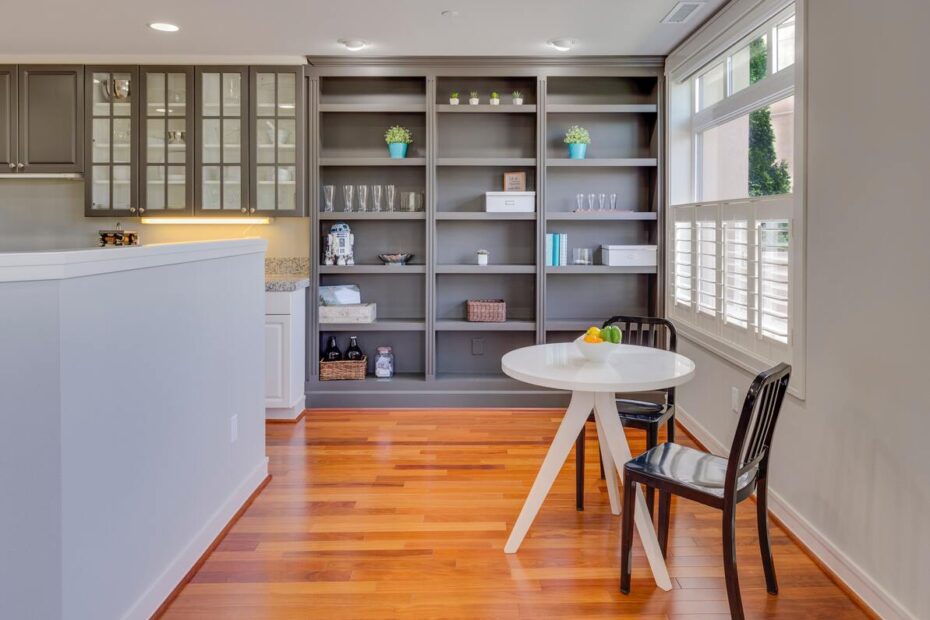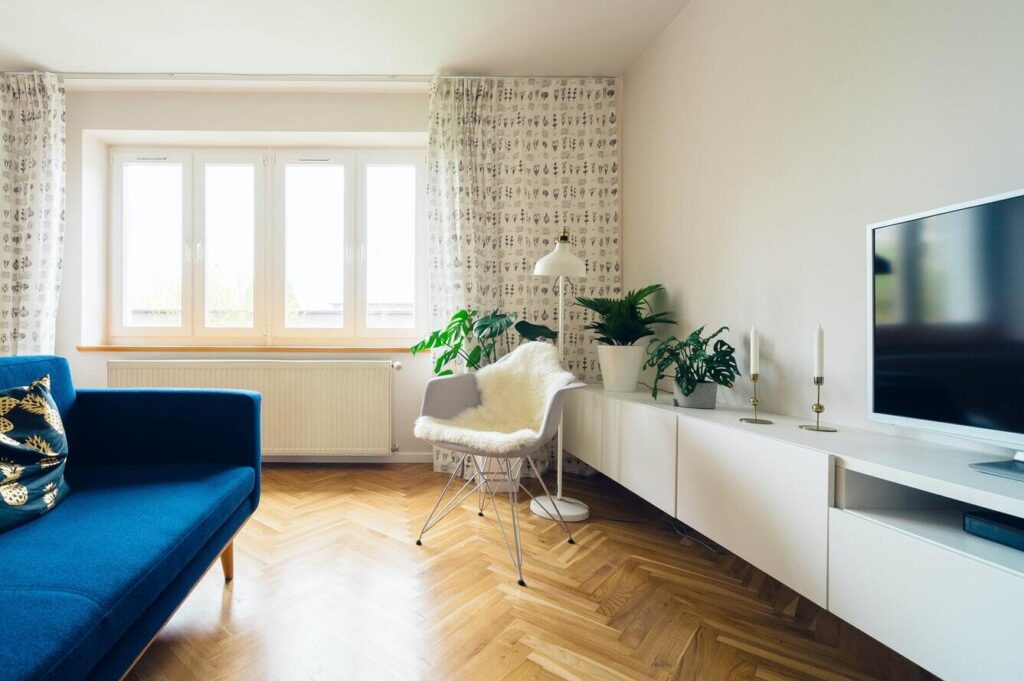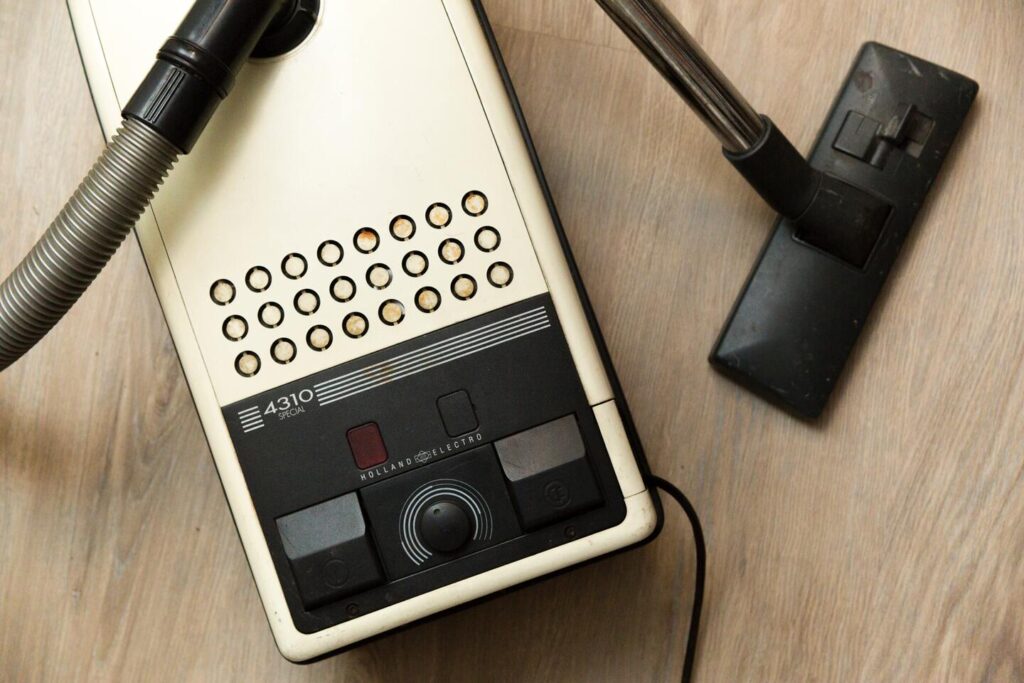Vinyl flooring and laminate flooring are popular alternatives to real hardwood flooring. Both types of vinyl flooring are inexpensive and have superior qualities compared to solid wood. However, there remain considerable differences between both materials. If you are deciding between vinyl flooring vs laminate flooring, this article will discuss the key differences between these two materials.
Material Composition
Both vinyl flooring and laminate flooring consist of multiple layers of construction. In terms of material composition, the main difference between the two lies in the foam core.
Vinyl flooring is a fully synthetic composite material. This means that no traces of organic material are present in its material composition, including its foam core. The foam core in vinyl flooring is typically made of a vinyl derivative. For example, Stone Plastic Composite (SPC) flooring has a foam core that consists of ground limestone and polyvinyl chloride (PVC).
On the other hand, laminate flooring has a core that is a combination of melamine resin and high-density fibreboard, which consists of wood fibres such as wood chips and sawdust.
Waterproof Properties
Since the core of laminate flooring contains wood fibres, contact with moisture can cause the material to become fragile. The fibreboard core can soften and swell when water is absorbed, causing warping of the material. It is especially dangerous when water is allowed to pool on its surface of laminate flooring as laminate flooring can only withstand contact with moisture for a very limited duration.
If seams are present, pooling of water can cause moisture to seep beneath the surface of the flooring and work its way into the core of the material. Water damage in this case is irreversible as even if dried out, the material will not be able to resume its original dimensions. Should the core become waterlogged, laminate flooring can even degrade the wear and image layers.
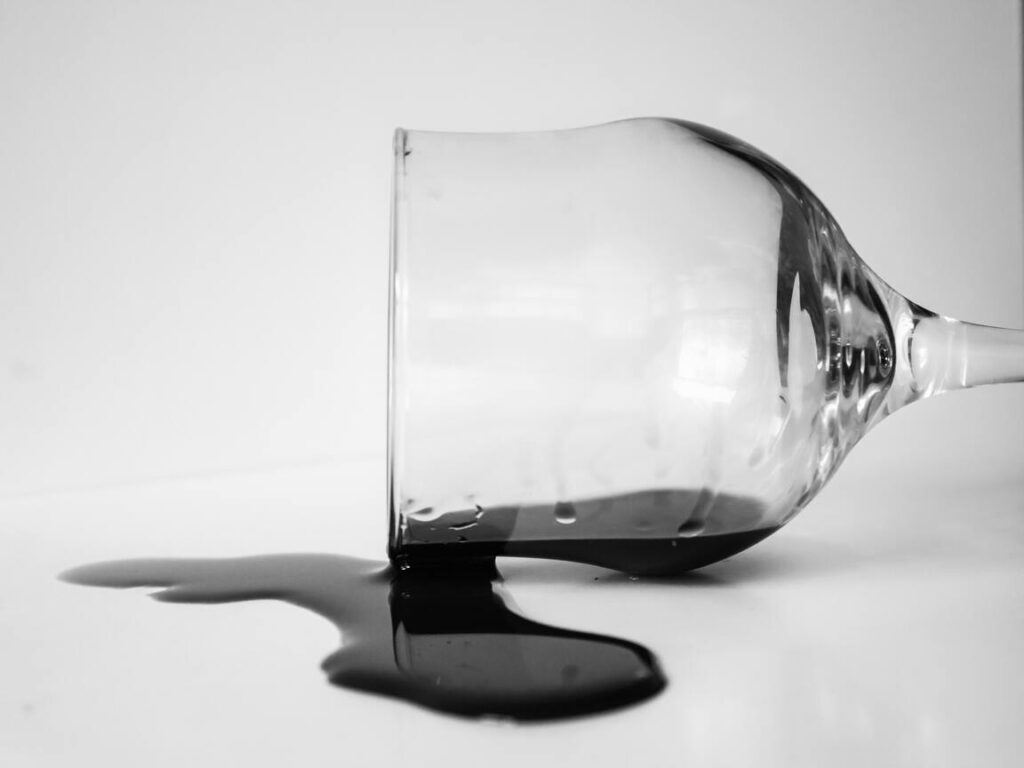
This process of degradation is known as delamination, which is when the layers start to separate from the material core. When this happens, the wear and image layers may peel back from the edges. Bubbles may also form under the surface. When water damage occurs, complete replacement of the affected areas is usually the only option.
In terms of moisture resistance, this is where vinyl flooring really shines. Unlike laminate flooring, there is no presence of organic substance in the material composition of its foam core. This means that vinyl flooring is impermeable to water and thus fully water-resistant. With vinyl flooring, homeowners do not have to worry about the flooring suffering from water damage. As it continues to retain its appearance and dimensions upon soaking, vinyl flooring is well-suited for use in high-moisture areas such as the kitchen and bathroom.
Comfort and Durability
When it comes to the feel of the material underfoot, laminate flooring is the winner of the two. Because of the wood composition in its core, laminate flooring can feel slightly warmer underfoot. Vinyl flooring, in comparison, feels harder and colder underfoot.

In terms of their durability, both materials are fairly resistant to damage due to their layered construction. The composite materials in both types of flooring hold up well against pedestrian activity, scratches and stains. Recent innovations and improvements in manufacturing have also brought about vinyl flooring products that have a rigid core construction, resulting in increased impact resistance and durability.
Maintenance
Since pooled water comes as a hazard to laminate flooring, it is not recommended that laminate flooring be wet-mopped. It is best to clean laminate flooring using dry methods such as a vacuum, dust mop or broom.
In comparison, vinyl flooring holds up well against virtually any cleaning method other than steam cleaning. Because of this reason, laminate flooring may not be the most practical choice of flooring when it comes to maintenance and upkeep. In particular, when pesky and enduring stains mean that wet mopping is the most convenient solution.
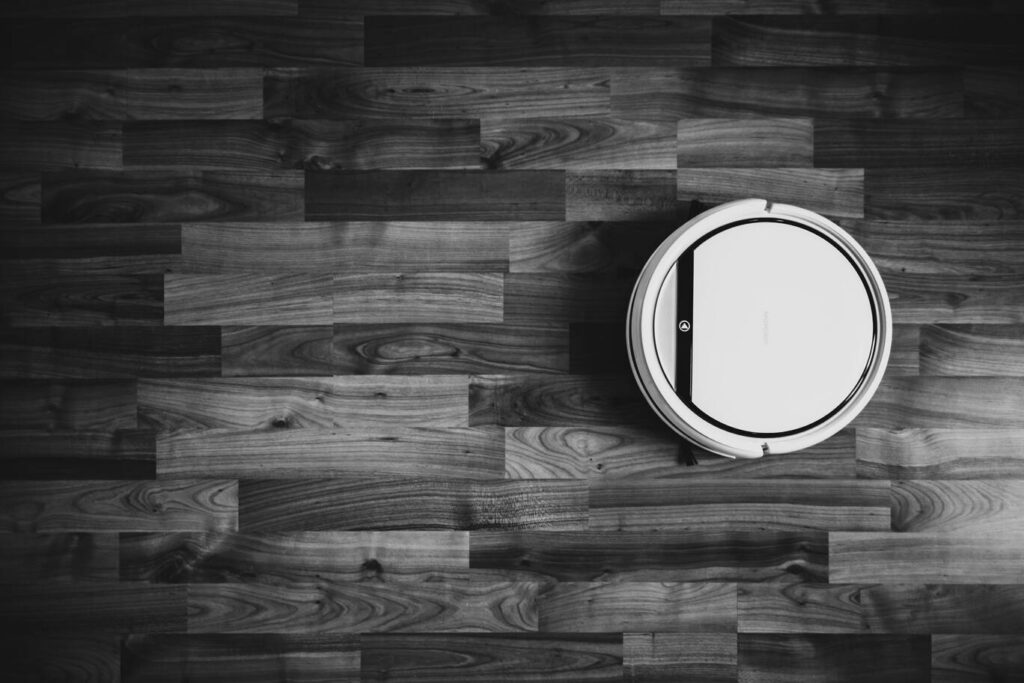
In conclusion, vinyl flooring and laminate flooring have many qualities that make them a comparable choice of flooring in the residential context. However, certain features of vinyl flooring stand out against laminate flooring. Specifically, these are its waterproof qualities and ease of maintenance. Homeowners may wish to bear this in mind when narrowing down their options.
